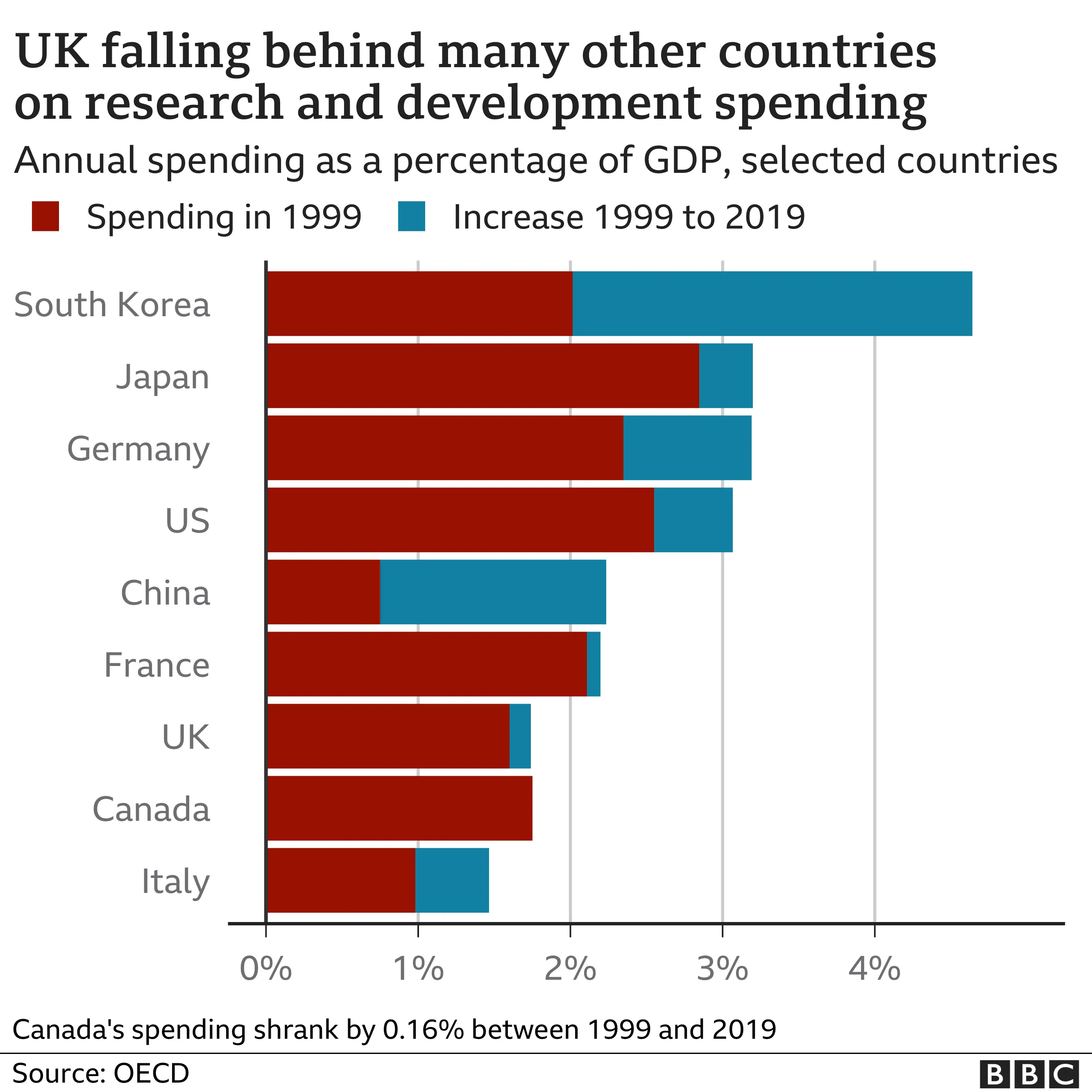Covid vaccine pioneer: Lives depend on science funding
 BBC News
BBC NewsOne of the scientists behind the Oxford Covid vaccine has said that our lives depend on future investment in science.
Prof Sir Andrew Pollard told BBC News that other nations will overtake the UK unless the Chancellor sticks to his commitment to double science spending.
Scientific leaders have been making representations to the Treasury ahead of next week's Autumn Budget.
There is concern that a pledge to increase funding to £22bn by 2024 will not be met.
Prof Pollard told BBC News: "Our very lives depend on our investment in science because so much of what we aspire to in our society requires a strong scientific base. We absolutely have to invest in science otherwise we will fall behind other countries over the months and years ahead."
Those lobbying the Treasury to stick to its commitment have highlighted the key role UK science played in developing vaccines, drugs and providing invaluable scientific advice to the public and ministers throughout the pandemic.
And the chair of the Commons Science and Technology Committee, Greg Clark, said a failure to keep to the pledge could threaten the UK's economic growth: "As we prepare to compete as a country in the future, it is unquestionable that one of our strongest assets is our science and technology base.
"The world is becoming scientifically more intensive. For us to go backwards would be to opt out of future prosperity."
 BBC News
BBC NewsTwo British Nobel prize winners gave evidence to Mr Clark's committee this morning. One, Prof Sir Paul Nurse, said: "We have to have a country that thrives on brains and skills and that is driven by science and research."
The other, Prof Sir Peter Ratcliffe, told MPs that the UK government failing to invest in science would be like New Zealand not investing in rugby.
"We are good at it. Why wouldn't you invest behind strength," he said.
"You might get away with slightly smaller investment than other countries for a while, but that's not going to last."
In November 2019, Prime Minister Boris Johnson pledged to double the amount the government spends on scientific research. That pledge was reinforced by the Chancellor Rishi Sunak in March 2020, when he committed the government to the £22bn increase.
The spending hike was to keep up with the UK's economic competitors, which have been investing heavily in research. British science is seen as among the best in the world, but successive governments have been spending a smaller proportion of GDP on research and development (R&D) compared with other advanced economies.
The UK's increase in R&D spending as a proportion of GDP between 1999 and 2019 has been 0.1%, considerably less than many of its economic competitors.
 BBC News
BBC NewsThe ambitious spending boost announced by the Chancellor last year was to help the government meet another of its objectives: for private and public spending on research in the UK to reach 2.4% of GDP by 2027. But even that target is a relatively modest aim as it would still leave the UK behind Germany, Japan, Korea and the US.
An analysis by the Campaign for Science and Engineering (Case) indicates that if the government puts off increasing annual research spending to £22bn by 2024 by three years it will lose £11bn of investment from the private sector and so fail to reach its target of 2.4% of GDP.
Prof Sarah Main, who is the campaign's executive director, said that without the investment that has been promised, the UK could lose jobs and economic growth in the process: "While the UK target is ambitious, it is the least ambitious target of all the G7 countries," she told BBC News.
"Across the world, other countries are pushing fast and hard on their science and innovation capability. The risk is that ideas, talented people and opportunities for investment ad partnerships will move overseas."
Those close to negotiations with the Treasury told BBC News they received "strong signals" last week that, while the government would maintain its target of increasing annual science spending to £22bn, it would not commit to do so by 2024.
There was also concern that the chancellor would give the appearance of an increase by adding existing spending to the science budget - but the reality could be flat cash for several more years.
With a week to go before the chancellor's Autumn budget, all the submissions have been made. The Treasury has produced its calculations and come up with its plan.
The proposed budgets for each part of government are now in a political phase and simply put, it is now up to Boris Johnson whether to exert pressure on the Treasury to deliver on the promise he made to transform the UK economy into a "science superpower".
Follow Pallab on Twitter
